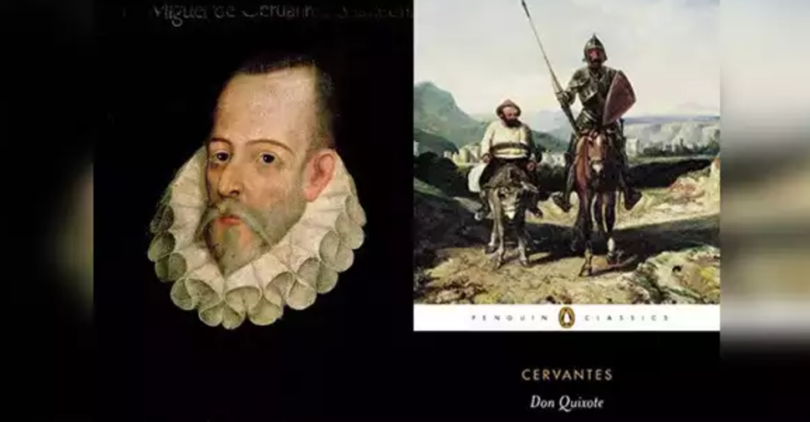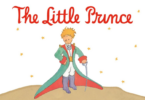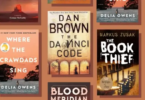Don Quixote by Miguel de Cervantes: A Timeless Masterpiece
Don Quixote, written by Spanish author Miguel de Cervantes and first published in 1605, is widely regarded as one of the greatest novels ever written. Its timeless themes, memorable characters, and groundbreaking narrative style have solidified its place in world literature. Often considered the first modern novel, Don Quixote continues to captivate readers with its blend of humor, tragedy, and profound commentary on human nature.
The Story of Don Quixote
The novel follows the adventures of Alonso Quixano, a middle-aged man who becomes so obsessed with books about chivalry that he decides to become a knight-errant. Taking on the name Don Quixote, he sets out on a quest to revive chivalry and protect the helpless, accompanied by his loyal yet skeptical squire, Sancho Panza.
Quixote’s idealism leads to many humorous and poignant encounters, as he often mistakes ordinary objects and situations for grandiose threats or opportunities. For instance, his famous battle with windmills occurs because he believes them to be ferocious giants. The juxtaposition of his noble intentions and the absurdity of his actions makes Don Quixote both a comedy and a tragedy.
The story is divided into two parts:
- Part I (1605): Focuses on Don Quixote’s initial adventures and introduces his delusions of grandeur.
- Part II (1615): Cervantes addresses critiques of the first part and deepens the complexity of the characters, exploring themes of reality versus illusion.
Themes and Symbolism
1. Reality vs. Illusion
A central theme of Don Quixote is the conflict between reality and illusion. Don Quixote’s chivalric fantasies often clash with the harsh realities of the world, highlighting the tension between idealism and pragmatism. This theme encourages readers to reflect on the nature of truth and the power of perception.
2. The Nature of Heroism
Though often misguided, Don Quixote embodies the essence of a hero—courageous, determined, and unwavering in his beliefs. His actions challenge traditional notions of heroism, suggesting that true valor lies in striving for noble ideals, even in the face of failure.
3. Friendship and Loyalty
The relationship between Don Quixote and Sancho Panza serves as the heart of the story. Despite their contrasting personalities—Quixote’s idealism and Sancho’s practicality—their bond reflects themes of loyalty, companionship, and mutual respect.
4. Social Commentary
Cervantes uses satire to critique the societal norms and institutions of his time, particularly the obsession with chivalric romances. The novel also examines class disparities, the concept of honor, and the impact of literature on individuals and society.
Impact on Literature
1. Birth of the Modern Novel
Don Quixote is often credited with laying the foundation for the modern novel. Cervantes employed innovative narrative techniques, including multiple perspectives, self-awareness, and a blend of genres, setting a precedent for future authors.
2. Influence on Writers
The novel has inspired countless writers, including Fyodor Dostoevsky, Mark Twain, James Joyce, and Jorge Luis Borges. Its themes and narrative style continue to shape the literary landscape.
3. Universal Appeal
Despite being written over 400 years ago, Don Quixote remains relevant due to its universal exploration of human nature, dreams, and the complexities of life. Its enduring popularity has led to numerous translations, adaptations, and interpretations in various media.
Cervantes: The Man Behind the Novel
Miguel de Cervantes (1547–1616) was a Spanish writer whose life was as colorful as his fiction. Before achieving literary fame, he served as a soldier, endured captivity in Algiers, and faced financial struggles. These experiences enriched his understanding of human nature, which he masterfully conveyed in Don Quixote.
Cervantes published the first part of Don Quixote in 1605, and its success led to a sequel published in 1615. Despite its acclaim, Cervantes faced challenges in his lifetime, including financial difficulties and competition with unauthorized continuations of his work. Today, he is celebrated as one of the greatest writers in history.
Why Read Don Quixote Today?
- Timeless Themes: The novel’s exploration of idealism, identity, and the human condition remains relevant across cultures and generations.
- Rich Humor: Cervantes’ wit and satire provide both entertainment and food for thought.
- Literary Mastery: As a groundbreaking work of fiction, Don Quixote offers a unique insight into the evolution of storytelling.
Conclusion
Don Quixote by Miguel de Cervantes is more than just a novel—it’s a celebration of the power of dreams and the resilience of the human spirit. With its memorable characters, profound themes, and innovative narrative, it continues to inspire readers around the world. Whether you’re a lover of literature or a seeker of timeless wisdom, Don Quixote offers a journey that is as enriching as it is unforgettable.







